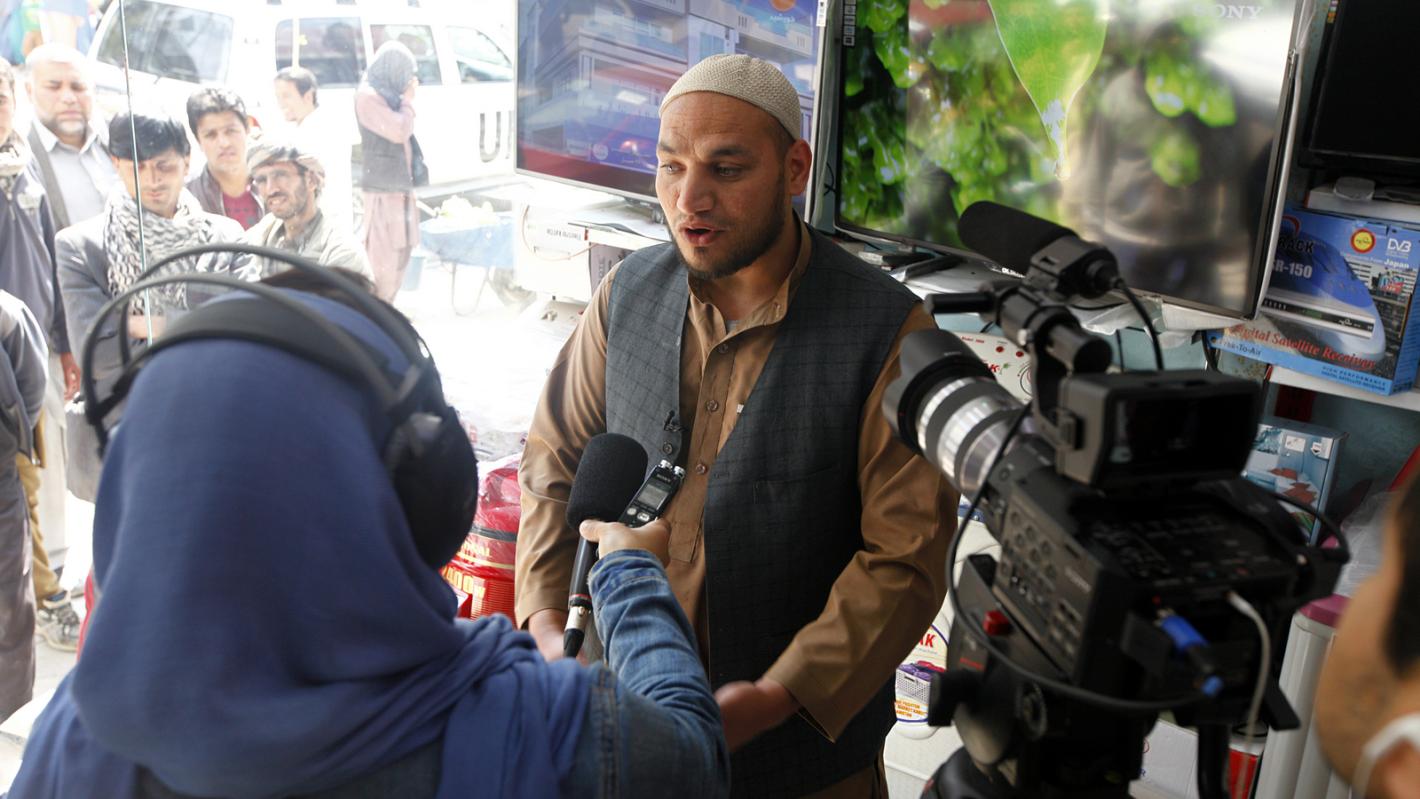HERAT - Improving the media’s access to information affecting local communities, strengthening press freedom and ensuring journalist safety were among the topics discussed at a UN-backed symposium in the western province of Herat this week.
More than 20 Afghan journalists representing various media outlets attended the event, engaging in lively discussion about the current state of journalism in Afghanistan and strategies to inform people more effectively while also holding the government accountable in its work to deliver services to communities across the province.
The event, organized by UNAMA’s Herat regional office and the provincial branch of media advocacy group NAI, was opened by NAI’s Herat director, Hamid Momen, who stressed that without a free and independent media, citizens suffer and corruption thrives.
“We all know that without a free press, we will not be able to support and protect human rights or promote and support peace or development,” said Momen, emphasizing that a truly free press requires that journalists are not targeted with threats of violence or violence itself.
Afghanistan’s constitution recognizes the right of every citizen to access information from government offices. This constitutional right might be limited only in narrow circumstances where disclosure would harm the rights of other citizens or threaten national security.
To clarify this constitutional right, Afghanistan adopted in 2014 the Access to Information Law, and implemented it in 2015. Despite this development, access to information remains a challenge for many Afghan journalists, whether due to security constraints or for other reasons, leaving audiences to draw their own conclusions about news that relies on second- or third-hand sources.
Freelance journalist Elaha Sahil, another participant in the Herat symposium, shared the challenges she and other female media professionals continue to face in their work.
“It is the responsibility of government departments to provide information to journalists, but they don’t often do so,” she said. “We all know the challenges, as they have been discussed for so long, but we should not underestimate the importance of advocacy and awareness campaigns in support of media and access to information.”
Compounding the issues around accessing information for accurate reporting, the safety of journalists working in Afghanistan has been an ongoing cause for concern, with 2018 being a deadly year for Afghan media. Ten journalists, including reporters and photographers, were killed in a single attack in Kabul on 30 April. UNAMA documented 14 journalists killed in conflict-related incidents in 2017, with many others suffering from harassment and intimidation.
UNAMA has been working with media not only in the country’s west but also in other parts of Afghanistan to provide media workers with an opportunity to network, share their experiences and, most importantly, strategize on ways to bring their communities together through accurate news and reporting.
In a press statement earlier this year on World Press Freedom Day, UN envoy Tadamichi Yamamoto recognised Afghanistan’s progress toward a free and open media as one of the country’s most notable accomplishments, but one that he said has been earned at an unbearable cost.
“The United Nations has a commitment to defend Afghanistan’s free press, and we will do all in our power to support free media so all journalists — Afghan media and foreign correspondents alike — can operate without fear of being harassed, intimidated or attacked,” said Yamamoto, the UN Secretary-General’s Special Representative for Afghanistan and head of UNAMA.
“The United Nations stands in solidarity with journalists,” he said. “We will continue to support the Afghan government in its efforts to implement measures that improve journalist safety and that foster an open media where no voice is silenced through fear.”
UNAMA supports the Afghan people and government to achieve peace and stability. In accordance with its mandate as a political mission, UNAMA backs conflict prevention and resolution, promoting inclusion and social cohesion, as well as strengthening regional cooperation. The Mission supports effective governance, promoting national ownership and accountable institutions that are built on respect for human rights.
UNAMA provides 'good offices' and other key services, including diplomatic steps that draw on the organization’s independence, impartiality and integrity to prevent disputes from arising, escalating or spreading. The Mission coordinates international support for Afghan development and humanitarian priorities.






